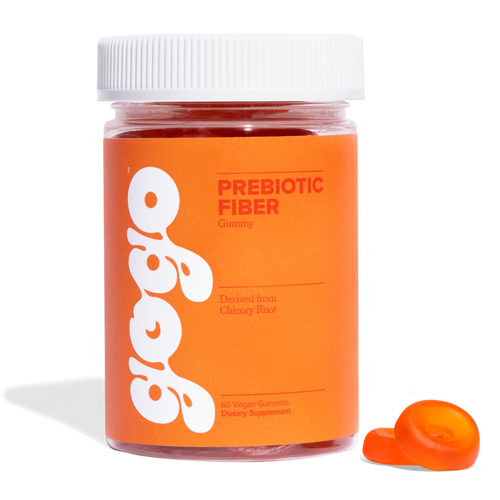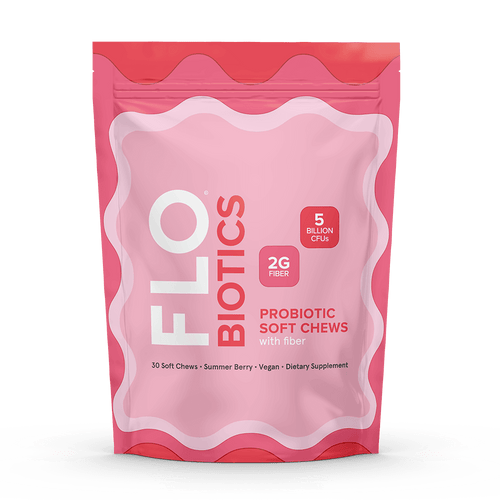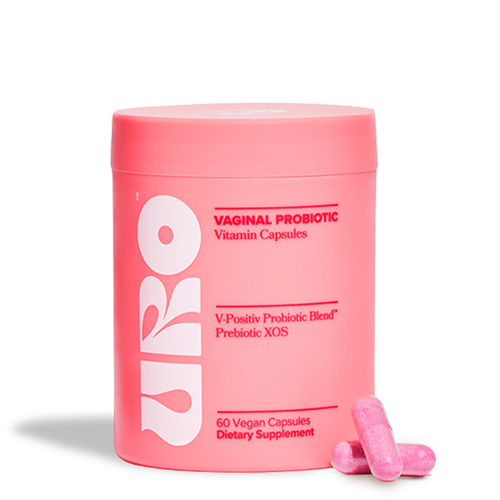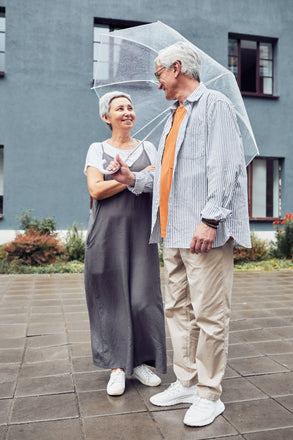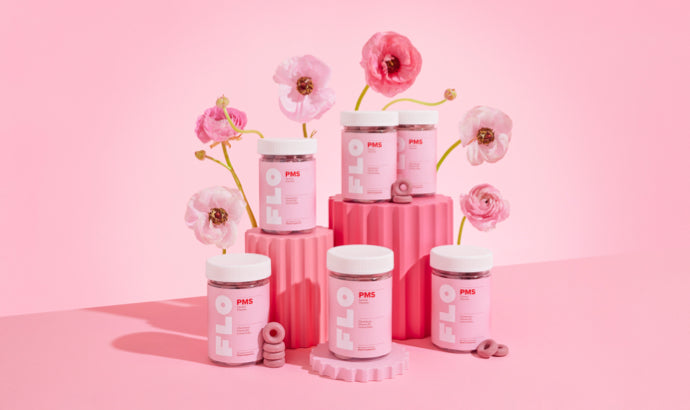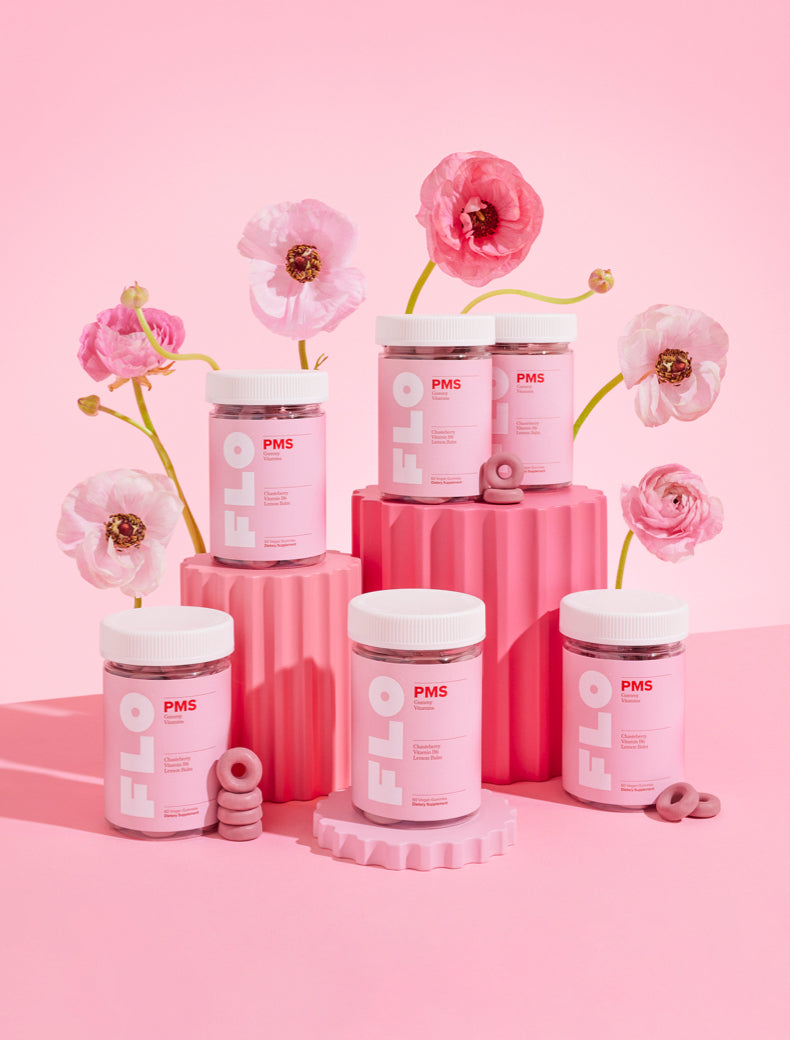Introduction to Period Acne
If you’re struggling with an unwelcome influx of pimples during your period, you are not alone. Far from it! A whopping 65% of women report a worsening of acne during their period. Yet for such a common issue, it is often misunderstood. What causes period acne, and what can be done about it?
During your menstrual cycle, hormone levels fluctuate, which can result in acne breakouts, typically just before your period arrives. These breakouts often occur around the jawline and chin area, which can be painful and embarrassing.
The root causes of period acne are hormones, specifically estrogen and progesterone, which contribute to skin inflammation, and testosterone, which triggers sebaceous gland activity and exacerbates acne symptoms. Estrogen and progesterone levels rise and fall throughout the menstrual cycle, while testosterone remains constant.
This hormonal imbalance contributes to increased levels of sebum, the oily substance that lubricates the skin, and can result in clogged pores and breakouts. Other factors, such as stress and friction from menstrual pads or tight clothing, also contribute to period-related acne in less obvious places.
Several options are available to treat period acne, including:
- topical remedies like benzoyl peroxide, salicylic acid, and topical retinoids;
- Prescription oral medications
- home remedies like tea tree oil, turmeric, honey, and warm compresses.
Women with persistent pimples, even when not on their period, should consult a dermatologist for further examination and potential treatments such as isotretinoin or oral antibiotics.
Proactive PMS Relief 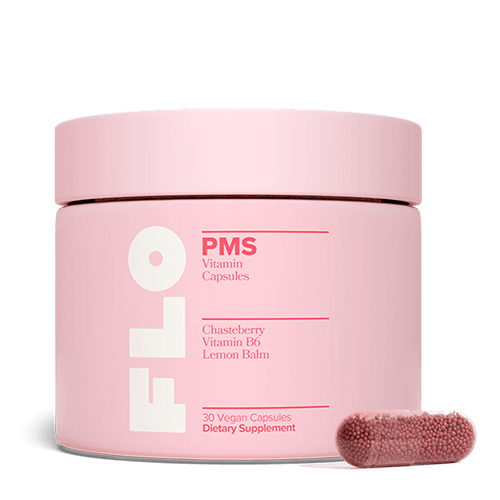
PMS Sugar-Free
Capsule
10 Key Takeaways:
- The menstruation cycle’s hormonal fluctuations cause period acne
- Hormones such as estrogen & progesterone contribute to skin inflammation resulting in acne
- Testosterone can trigger sebaceous gland activity & exacerbate acne symptoms
- Period pimples usually occur around the jawline & chin area
- Treatment options for period acne include topical remedies & oral medication
- Women with persistent pimples should consult with a dermatologist for further examination & potential treatments
- Irregular periods may indicate Polycystic Ovary Syndrome (PCOS), requiring medical attention from a doctor
- Good skincare practices, a healthy diet, and routine exercise can reduce stress during menstruation
- Proper medical attention helps treat period acne symptoms effectively
- Managing period problems reduces stress levels during menstruation cycles
What Causes Period Acne?
The root cause of acne during your period is hormonal fluctuations, which take place throughout a woman's menstrual cycle. Just before the start of a period, estrogen and progesterone levels drop, causing the sebaceous glands to secrete more sebum, resulting in clogged pores and breakouts.
Several options are available to manage and treat period-related acne, including OTC products such as benzoyl peroxide and alpha hydroxy acids, natural remedies, lifestyle changes, and medical treatments.
Regular use of OTC products can help prevent future breakouts and reduce high GI foods in your diet. Talk to a healthcare provider about prescription treatments if needed.
The key to managing period-related acne is understanding the root cause and taking steps to address it. This includes using OTC products regularly, making lifestyle changes, and seeking medical treatment. By caring for your skin and understanding what causes period acne, you can have clear skin all month.
- Hormonal fluctuations are the main cause of period-related acne
- Stress and friction from menstrual pads can contribute to breakouts
- Managing period-related acne includes using OTC products, making lifestyle changes, and seeking medical treatment if needed
- The key to managing period-related acne is understanding the root cause and taking steps to address it
How Do You Get Rid of Period Acne?
Healthy Skin Habits to Prevent Period Acne
There are several things you can do to manage and treat period-related acne. Over-the-counter (OTC) products such as benzoyl peroxide and alpha hydroxy acids can help. Avoid irritating products like greasy sunscreens and cosmetics.
Limiting exposure to UV rays, washing your face after sweating activities, and eating foods with low glycemic index (GI) levels can also help regulate blood sugar levels and prevent breakouts. If OTC methods are ineffective after three cycles, talking to your healthcare provider about prescription treatments, such as retinoids or birth control pills, may be necessary.
Topical Treatments for Period Acne
Topical treatments for period acne include OTC products like benzoyl peroxide and salicylic acid and prescription topical retinoids made from vitamin A that promote new skin cell production to push oils out of blocked pores. Warm compresses or ice packs can also help relieve pain associated with deep pimples or cysts during a painful breakout.
Oral Medications for Period Acne
Oral medications for period acne include spironolactone, birth control pills, antibiotics, and isotretinoin (Accutane). A virtual consultation with a board-certified dermatologist can help determine the best treatment plan for each individual based on their skin concerns and symptoms.
Other Holistic Approaches to Managing Period Acne
Other holistic approaches to managing period acne include home remedies like tea tree oil, turmeric, honey, and warm compresses with green tea bags or cold compresses. Maintaining a healthy diet and exercise routine and good skincare practices can also help reduce stress levels and prevent breakouts during the menstrual cycle.
The Role of FLO Vitamins in Managing Period Acne
FLO vitamins can be a helpful addition to a skincare routine for managing period acne. FLO vitamins contain essential vitamins and minerals that support skin health, hormone balance, and overall wellness.
Proactive PMS Relief 
PMS Sugar-Free
Capsule
For best results, maintain a comprehensive approach to managing period acne.
How Can You Prevent Period Acne?
A balanced diet can play a significant role in managing period acne.
- Foods like leafy greens, fresh fruits, and nuts are great sources of vitamins and minerals that promote skin health.
- Limiting sugary and carbohydrate-heavy processed foods can help avoid insulin spikes contributing to acne.
- Taking supplements like omega-3 fatty acids, vitamin E, and zinc can also be beneficial in reducing acne severity.
It's important to remember that everyone's skin is different and what works for one person may not work for another. However, by making small changes to your diet and incorporating skin-friendly foods, you can positively impact your skin health and reduce the severity of period acne. If you're struggling with period acne, it's always a good idea to consult a healthcare provider for personalized advice and treatment options.
Understanding the Connection Between Stress and Period Acne
There are several ways to manage and treat period-related acne, including:
- Using OTC products such as benzoyl peroxide and alpha hydroxy acids
- Avoiding irritating products like greasy sunscreens and cosmetics
- Limiting exposure to UV rays
- Washing your face after sweating activities
- Eating foods with low glycemic index levels
- Visiting a healthcare provider or dermatologist for prescription treatments if needed
- Using a warm compress or ice pack to relieve pain associated with deep pimples or cysts during a painful breakout
To prevent future breakouts, using OTC products regularly and reducing high glycemic index foods in your diet is recommended. If these measures aren’t effective after three cycles, prescription treatments may be necessary.
Common prescription treatments for period-related acne include retinoids for mild-to-moderate acne treatment and prevention and birth control pills. Anti-androgens like spironolactone, known for its efficacy in treating acne, may also be used.
The key to addressing period-related acne is understanding its root cause and taking the necessary steps to properly address it, leading to clearer skin all month long!
Conclusion and Final Thoughts on Period Acne
Period-related acne affects 65% of people and is caused by hormonal fluctuations during a woman's menstrual cycle. The drop in estrogen and progesterone levels just before the start of a period triggers the sebaceous glands to secrete more sebum, leading to clogged pores and breakouts.
Other factors, such as stress and diet, can contribute to period-related acne.
To manage and treat period-related acne, one can use OTC products like benzoyl peroxide and alpha hydroxy acids, avoid irritating products, limit exposure to UV rays, maintain a healthy diet and exercise routine, and visit a healthcare provider or dermatologist for prescription treatments if necessary.
To prevent future breakouts, it's recommended to use OTC products regularly and reduce high GI foods in the diet. If these measures are ineffective after three cycles, talking to a healthcare provider about prescription treatments may be necessary.
The Importance of Being Proactive in Managing Period Acne
Managing period acne is essential to maintain clear skin all month long. Understanding the root cause behind period-related acne and taking steps to address it adequately is vital.
Additional Resources for Managing Period Acne
If you're struggling with period acne, several resources are available to help you manage your symptoms effectively. Some resources include visiting a healthcare provider or dermatologist for personalized advice and treatment options, researching OTC products and skincare routines that have been proven to be effective, and connecting with support groups or online communities to share your experiences and learn from others.
With the right approach and resources, managing period acne can be manageable and stress-free.




